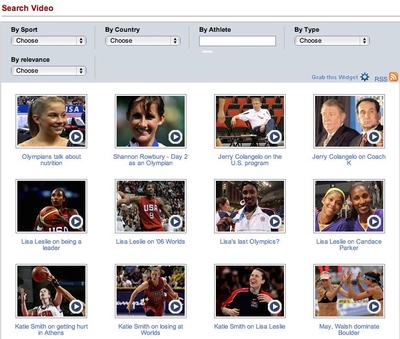 We realize talk about measuring audiences on television or the Web can get pretty dull. But there is something that intrigues us about NBC’s “billion-dollar lab” beyond the sheer size of the effort.
We realize talk about measuring audiences on television or the Web can get pretty dull. But there is something that intrigues us about NBC’s “billion-dollar lab” beyond the sheer size of the effort.
That “billion-dollar lab,” as NBC calls the 2008 Olympic Games in Beijing, will provide unprecedented insight into how people are using traditional media — television — and new media — the Internet.
NBC, the sole broadcaster, will mine 3,600 total hours of coverage from its network, along with NBC-owned properties Telemundo, USA, Oxygen, MSNBC, CNBC, and Bravo. The company is also planning to make 2,200 hours of streaming video available on NBCOlympics.com. Consumers also will get video-on-demand to their computers and content through their mobile phones.
“The billion-dollar lab is an extraordinary research opportunity,” said Alan Wurtzel, NBC’s research chief.
“I have no idea how people are going to use the Internet on the Olympics,” Wurtzel said [via New York Times].
We all think we know: Internet TV, Cloud TV, IPTV, and so on, will continue to rise and traditional viewership will continue to fragment. A recent research finding from Pike & Fischer [via Ars Technica] notes that by 2012 a third of Americans will be watching video-on-demand content.
See also: NBC Olympics on the Go will allow (some) fans to download events to watch on their computers
Live sports is also scoring well on the Web, including Major League Baseball’s MLB.tv, the NCAA’s March Madness men’s asketball tournament, the U.S. Open golf tournament, and just-concluded Wimbledon. No sporting event, not even the Super Bowl, will be watched by as large of a worldwide audience as the Olympics.
It’s perfect for such a large data mining project. So what will NBC do with all this information?
For one, NBC has its own agenda: to better inform advertisers, who spend millions of dollars on the three-week event. The mined data probably will become an important part of the ad negotiations for the next Olympic Games in Vancouver, British Columbia, and we wouldn’t be surprised if it impacts all future talks between the networks and advertisers.
For us, we want the networks to quit thinking of themselves as (traditional) networks but as (new) media companies that can give consumers what they want: all sorts of content, on various platforms, for consumption wherever they want, whenever they want.
Perhaps for the first time we can get a clear picture of what’s really going on out there between traditional and new media. And that makes us wonder: What innovation will all this mined information lead to?


You certainly have no idea, Alan. You limit Olympic video streams on your website to those computers having Intel processors. You won’t let millions of users with Macs that have PowerPC chips, but not Intels, watch the videos online.
It’s an unnecessary limitation, and from what I can tell, no other news website does this. You even provide for lower-end XP systems.
This kind of technologically narrow-mindedness (or Micro$oft marketing strategy?) effectively skews your data. Certainly, at least, your numbers at the website are probably much lower than they would have been otherwise.
Let’s hope other media conglomerates don’t make the same mistake you did.
Media innovates on internet,, Internet are more powerful than TV.